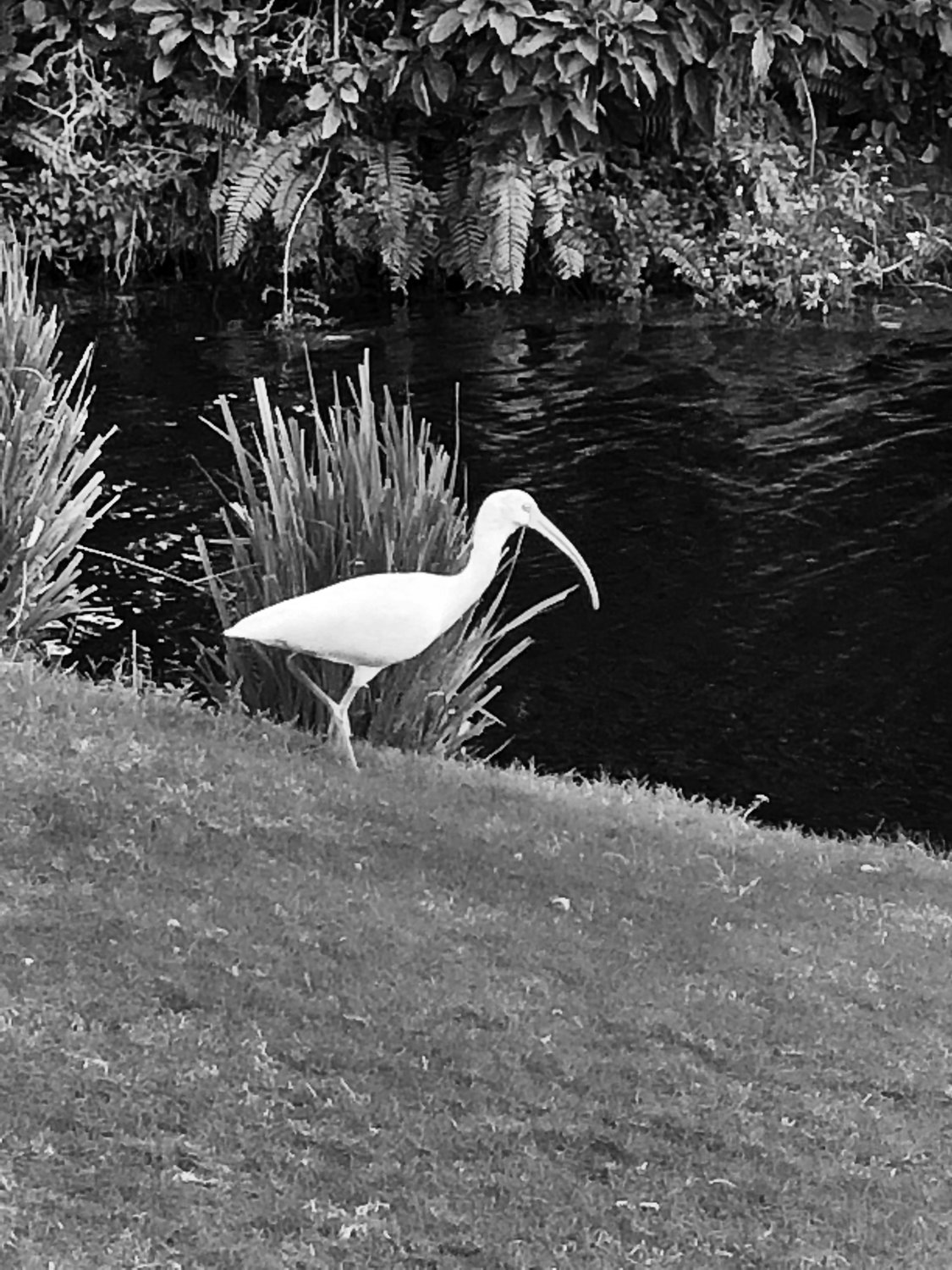In our chemically altered landscape, signs of Eden
“Privilege.” What does it mean?
The help at Frenchman’s Creek – a manicured and gated community in Florida’s Palm Beach – come from such “exotic” places as Guatemala and Haiti, and they bring you little luxuries like heated beach robes, or they take away such burdens as leftover dishes of unfinished tasty treats.
Of course, it’s comfy to bask in the welcoming sunbeams or the sheltering shade. I try to make use of my dated camera – but I can’t figure out how to snap a shot of the elegant solitary shorebird that stubbornly stays put in the fake lagoon (along with an actual alligator, perhaps) within the ever-intruding golf course lawns, the hills and dales of this chemically groomed landscape.
But then I think, “oh well, I’ll remember the lonely beauty of a heron or egret in the tiny pool even without visual evidence”.
After a lavish luncheon at the 19th Hole oasis, I make so bold as to ask the help what becomes of the remnants of this rich repast. The answer is not unexpected, but still shocking: “It all goes into the trash,” said with a polite but thoughtful and regretful half-smile and an exotic accent.
This past month was Tevet, the occasion of a special fast to recall the destruction of a Temple of splendor – perhaps like this regal realm, away from wintry blasts. A rabbi explains that without the losses of prior splendors, we would not have brought the Torah with us into modern times, interpreting its chapters to make personal meaning of every month, and moment, and era.
Now, with Tu B’Shevat reminding us to thank the trees for their gifts to us, creation invites us to salute and bless the lives great and small that share whatever Eden we can glimpse, perhaps regretfully as well as gratefully.
My granddaughters label this place with French street names “Paradise.” But I am aware of the infinite ironies of my easy sojourn. It’s so convenient to fly in a jet plane all over the gorgeous (but doomed) planet Earth, taking off from a flat airport and landing in a concrete creation crafted by bulldozers. And yet, no matter what you say or think to yourself, or read about, it’s a mix of gratitude, greed and philosophical reflection to come up with a proper perspective on the ironic and incredible “beauty” of this garden of Eden.
The high point for me here in this land of the eternal (youth?) was a stroll along the actual shoreline of the ocean, picking up spectacularly beautiful shells like divine gems, and greeting unusual – I mean unfamiliar – gulls, and the very same piping plovers I see in Narragansett, like tiny elfin friends from home.
I haven’t really left Rhode Island though, because I am courteously greeted by so many familiar faces from Providence. Dr. Phil Torgan shakes hands with me, as does Judge Marge Yashar. Morris Weintraub (my father-in-law!) and gracious Joan Gelch organize a rendezvous for me with a star witness to the abundant wildlife and diverse birds that survive ... nay, flourish! … despite, or because of, that golf course designed for human games.
Dr. “Burt” (almost sounds like “Dr. Bird”) takes me in his golf cart on a fabulous tour, with his guidebook in hand. He makes a mark, a checkmark, beside the snapshot of each winged species we see. We also stop for a moment to say hello to my old college classmates, who are holding their clubs and keeping their scores.
Later, I repeat this lovely adventure with my daughter, who uses her phone “device” to record each wildfowl we can get close enough to for purposes of proof and souvenirs of a splendid if brief interlude. Oh, it was a most successful holiday weekend! Babies, fledglings, distinguished elders and a chance to show off my snobbery and eccentricities and to take a break from my position of “privilege” for these blessed hours.
Back to trees and Tu B’Shevat: Morris points out a rather bare tree, just beyond the border of his home here, leafless among the swaying palms. Aha! Upon its highest branches there is a nest, an osprey’s world. Maybe it’ll scare off the raccoon that visits the mini-pool and makes a mess. I look upward with awe and astonishment at the surprising survival of Eden, no matter what we do to it.
MIKE FINK (mfink33@aol.com) teaches at the Rhode Island School of Design.








